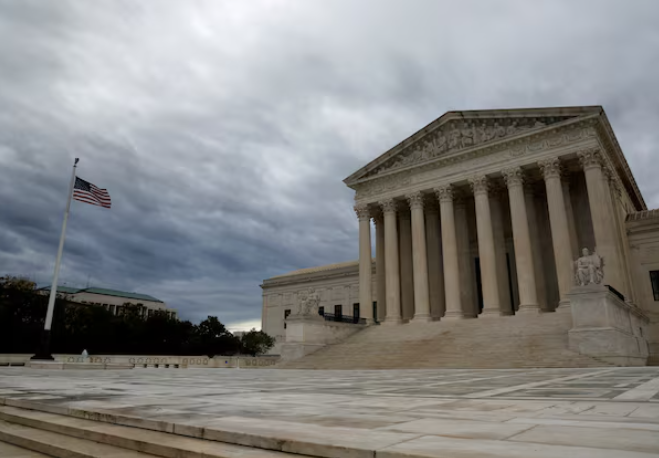The Supreme Court rejected the Green Party’s attempt to rejoin the Nevada ballot on Friday, strengthening the Democrats’ effort to keep the party and its presidential candidate, Jill Stein, from competing in this battleground state for the November 5 election.
The justices upheld a Nevada Supreme Court ruling, which barred the Green Party after it used the wrong form to collect voter signatures for ballot qualification. The Green Party argued that Nevada’s ruling violated the 14th Amendment’s guarantees of equal protection and due process.
Nevada remains one of the key states that could determine the outcome of the U.S. presidential election, where Republican Donald Trump faces off against Democrat Kamala Harris. Democrats fear that Jill Stein’s Green Party candidacy could siphon votes away from Harris, who currently serves as the U.S. vice president. Jay Sekulow, who once acted as Trump’s legal counsel, represents the Green Party in this case.
Under Nevada law, the Green Party needed 10,095 signatures to appear on the 2024 ballot. Signature collectors also had to submit affidavits affirming that they believed each signatory was a registered voter in the county where they resided. The Nevada Secretary of State’s office mistakenly provided the Green Party with an incorrect affidavit form, meant for ballot initiatives and referenda rather than political parties. This form lacked language referencing the voter registration status of signatories. Despite this error, the Secretary of State approved the Green Party for the ballot after it submitted 29,584 signatures.
In June, the Nevada Democratic Party filed a lawsuit, arguing that the Green Party’s signatures were invalid. A Nevada state court judge initially rejected the Democrats’ challenge, ruling that the Green Party’s use of the incorrect affidavit form still substantially complied with state law. However, the Nevada Supreme Court overturned this decision on September 6, ruling 5-2 that the signatures were invalid. The court stated that even a “cursory review” by the Green Party would have revealed the paperwork error.
Two dissenting appellate judges argued that they would have allowed the Green Party to stay on the ballot, citing the party’s “substantial compliance” with the law and the “egregious error” made by the Secretary of State’s office in providing the incorrect form. In response, Sekulow filed an emergency appeal with the U.S. Supreme Court, stating that the Green Party’s candidates had been “wrongfully ripped from the ballot,” and that Nevada voters who supported them would lose their opportunity to cast their votes.
Jill Stein, after the Nevada court’s decision, sharply criticized the Democrats. “This is shameless hypocrisy from the party that claims to ‘save democracy’ while working to destroy it,” she said. “We have faced legal attacks from Democrats in state after state, and it’s clear their goal is not only to deny voters a real choice but also to drain our time, money, and resources fighting these lawfare tactics.”
Elections analyst J. Miles Coleman of the University of Virginia’s Center for Politics noted that Stein’s presence on Nevada’s ballot would have forced Democrats to work harder to rally their voters to defeat Republicans. “The Harris campaign wants to frame this as a clear two-party contest,” Coleman explained. “Fewer third-party candidates make it easier for Harris to consolidate the anti-Trump vote.”

